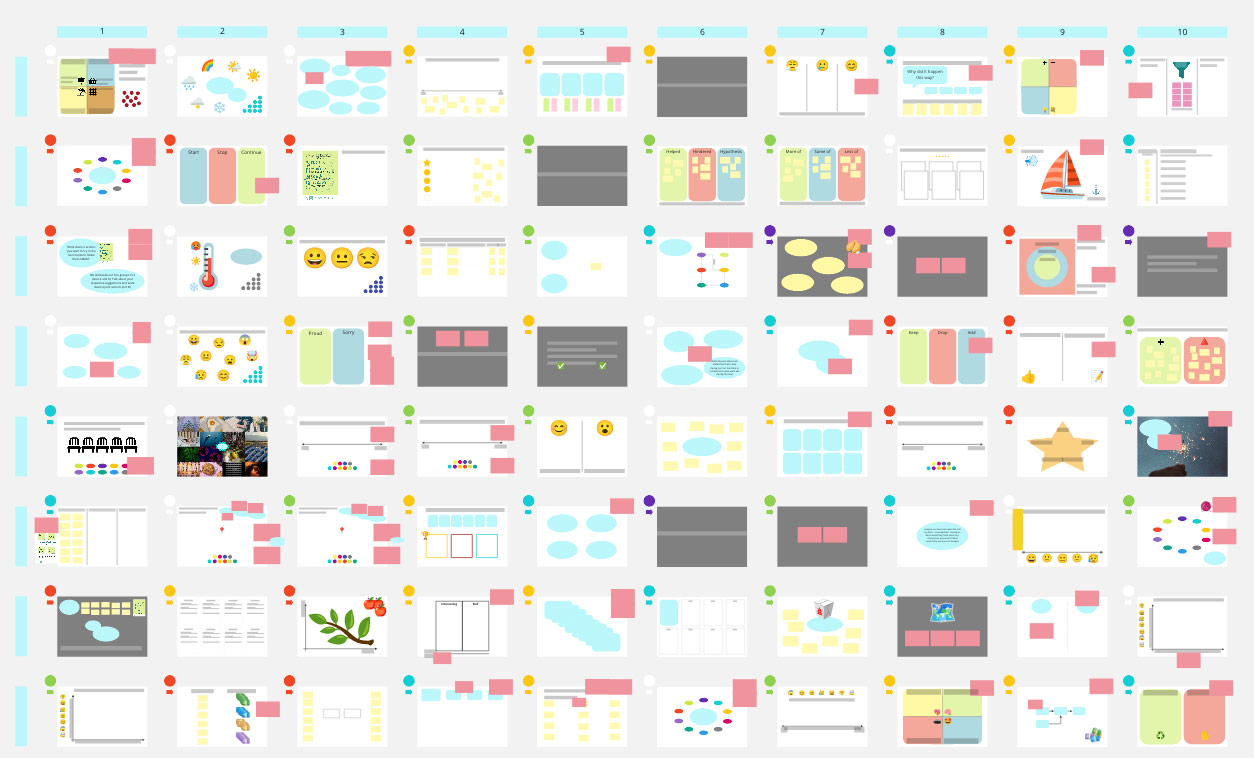Planning your next agile retrospective? Start with a random plan, change it to fit the team's situation, print it and share the URL. Or browse around for new ideas!
Is this your first retrospective? Start here!
Is this your first retrospective? Start here!



